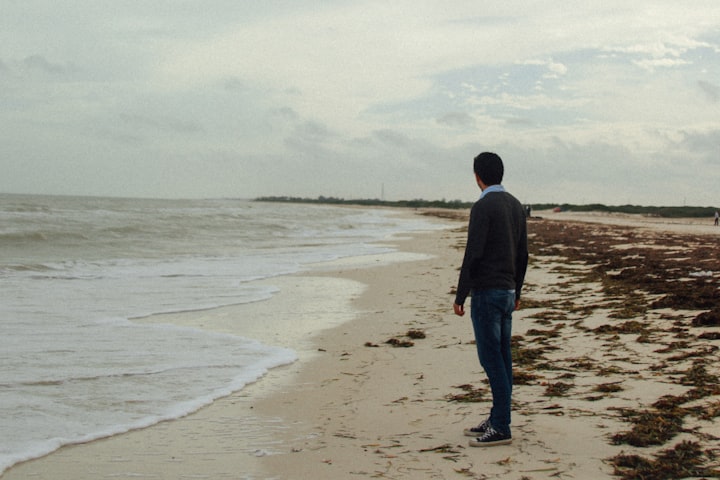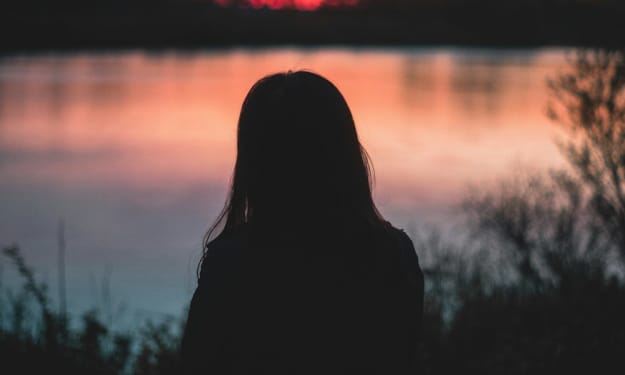The Loneliness of Our Society
An Investigation

Loneliness is when a person feels depressed, down and almost chronically stressed out of the situation of having no friends - whether that be in a close social group or a greater one. You may remember that I wrote an article that was about the difference between being alone and being lonely. I myself am alone, but I am not lonely. The fact is, there are some people who enjoy having other people close to them and then, even if they had a lot of people around them in their physical area, they can still feel lonely even though they are not alone in the literal sense. What I am going to investigate is the statistics of loneliness and the 'why' surrounding the assumed increase of loneliness. I want to get to the root of what is actually the main problem which causes people such as the 'incel' groups to exist as they are a simply products of the environment, the products of the social situations they had probably previously been in and some sort of social traumas they may have suffered.
During the COVID-19 pandemic, it is obvious that loneliness went up massively and since the end of 2020, the statistics have been released. They state the following:
(These statistics are for the UK and were published during the late half of 2020)
- Approximately 2.6 million people admitted to feeling very lonely because of the virus
- 31% of these stated that the loneliness had negatively affected their wellbeing in the last seven days because of it
- Working age adults are more likely to feel lonely often or always
- Compared to the UK average, those feeling lonely often or always reported having higher feelings of depression and anxiety
- About 70% of these people who felt lonely often or always reported having people who would be there for them in some respects
- Around 5.5K people in the UK reported having 'chronic loneliness'
- Around 5.6 million adults reported feeling loneliness in some way, shape or form on occasion
Why is this?
The reasons seem to be as follows:
- 27% of these people who reported being more lonely were reported to be in bad health (this has not been shown to be a causation or a result of the loneliness)
- 11% (approximately) are disabled either physically or mentally and therefore are either not able to get around by themselves or are unable to socially connect with others
- 9% of these people are single and possibly live alone
In surveys done on loneliness, what did these people actually say?
- At least 45% of these stated that their wellbeing was negatively affected or that they were worried about their wellbeing as a result of the loneliness
- Almost 25% of these stated that their work and hobbies were being negatively affected or that they were worried about them being so
- Around 15% stated that their finances were being negatively affected as a direct result of their loneliness
- Around 15% stated that their health was being negatively affected due to the fact they were lonely
- In children and teenagers, at least 10% stated that their school-work was being negatively affected as a result of loneliness
- 80% of adults felt more stressed or anxious as a result of their loneliness and about 40% of them stated that they had nobody to talk to about this regardless of whether they lived with other people or not
- Around 10% of chronically lonely people stated that they were satisfied with their lives with only 15% feeling happy from time to time
- Around 25% of these stated that they felt unsafe in their own home
- Around 20% of these people stated that they are struggling to find things to help them
Who are in these groups? Who are these people?
These people are normally, but not always:
- People in ill health. Having things such as: cancer, heart disease, angina, amputees etc.
- People who are higher on the autism spectrum*
- People who live alone or with people of which they are not happy with and therefore feel unsafe
Most obviously, a lot of these comments are made because of the COVID-19 pandemic moving us further away from each other. But let us now have a look at the statistics for loneliness in 2017, again applicable to the UK:
- 5% of the adults in the UK (approximately 2.5 million) reported feeling lonely
- People aged 16 to about 25 reported feeling more lonely, whereas this was a lot higher than the elderly age groups
- Women reported feeling lonely more than men
- 10% of those with long-time illness or disabilities reported often or always feeling loneliness
So, what is the most common profile of this reported loneliness?
(note: reported)
- Women
- Not in paid work - more likely to be retired but not all the time
- Better off financially than others on average
- Worse wellbeing than the average
- Those with a long-term mental or physical health condition
- Aged 35 through to about 64
Yes, these are reported unto a survey, but it is very well known that men often do not report their loneliness or when asked are more likely to lie or at least cover up the truth about how they are actually feeling.
According to studies on loneliness in 2019, the uncomfortable truth seems to be that at least one in five men are feeling lonely and/or isolated due to their following situations (one or more) that may be applicable:
- Financial - they do not have enough money to do what they would like (i.e: believing that a female partner would put financial stability on the list of things deemed attractive in a male partner)
- Social - having smaller friendship groups but are not encouraged to be deeply emotionally involved as women are encouraged, with their friends
- Mental - men are less likely to report having a mental illness and are less likely to get help for it. This therefore leads to the rate of male suicide being a lot higher than that of women
- Sexual Orientation - Homosexual men are more likely to hide their sexual orientation, especially those who are BIPOC and live in culturally based settings. This would increase the rate of depression and anxiety at an exponential rate
- Gender Identity - Trans-men are more likely than women to find it difficult to trust others and express themselves, this can lead to social isolation
The next thing I want to discuss is incels and how this all leads to this strange phenomenon of a group that are growing on the internet, more specifically social media
So, what is an incel?
I recently learned what an incel was and was interested in looking at the way in which they operate and the internet's reaction to them. Let's take a look at the dictionary definition of an incel:
a member of an online community of young men who consider themselves unable to attract women sexually, typically associated with views that are hostile towards women and men who are sexually active.
Incels are therefore a product of the various things that lead to male loneliness and isolation but in an extreme form at which they have been somewhat radicalised by this group idea that the internet media have faced them with. This idea is based mostly in toxic masculinity which suggests that not having certain traits makes you less of a 'man'. These include:
- Not having financial stability
- Not having a sexual partner
- Not having certain appearance traits
- Not having a professional job
- Not having certain interests/personality traits
This leads to feelings of anger towards the group which has been seen as not only putting these in place, but also upholding these viewpoints by being more sexually attracted to the men who uphold these traits themselves: women.
Within the controlled setting of the internet and the 'chatrooms' in which these take place, sexually active women are actively insulted, ridiculed and dehumanised for being attracted to these men who are referred to only as 'chads'.
How do people react towards incels?
Well, let us take a look at the common traits of an incel in terms of physicality, mentality and lifestyle:
In appearance, incels are commonly...
- Unkempt
- Unhygienic
- Overweight or underweight
- Lacking muscle mass
- Short to medium height
In mentality, incels are commonly...
- Scattered
- Angry/Frustrated
- Depressed/Anxious or both
- Sometimes suicidal
- Are prone to violent outbursts
In lifestyle, incels are commonly...
- Lacking in healthy routines (such as even small amounts of exercise)
- Spending many hours on the internet either gaming or within the chat communities related to their social position
- Do not leave the house regularly and this is not due to agoraphobia**
- Spend many hours sitting down
- Have few other hobbies that are not involving to gaming or chatrooms
So, how do the general public and media react to incels existing?
Here are statements made from the general media:
- Harpers Bazaar Magazine - Their existence is not about being lonely. It is about blaming women for their loneliness
- The New Yorker - Incels aren't really looking for sex. They're looking for absolute male supremacy
- The Conversation - Incels, or 'involuntary celibate' men, are increasingly radicalising online and committing acts of violence against women
- The Verge - Should we treat incels as terrorists?
- NBC News - 'Joker,' starring Joaquin Phoenix, sparked an incel controversy because it's hopelessly hollow
So what does this tell us?
The treatment of incels are because of the some that are violent towards women but in actuality, acknowledging that these people require psychological help is less common than it should be. In fact, ignoring the way in which that these people require psychological help just perpetuates the cycle and increases the risk of even more violence.
Conclusion:
Men are more likely to commit to thoughts and actions of ending their own life so make sure, that whatever situation you are in even if it is considered to be 'happy' - always ask you brother, male friend, husband, boyfriend etc. and see if they are actually feeling alright. Commit to stating to them, if they are not feeling alright, that psychological help should not be stigmatised as bad in their mind and it makes them no less of themselves for getting help to improve their own state of wellbeing.
Footnotes:
*I am also higher on the autism spectrum and have not experienced loneliness as often. This is not all people higher on the autism spectrum, this is the people taking part in the survey on the autism spectrum
**I am personally agoraphobic and quite badly, it is debilitating. Incels normally do not leave their house due to the fact that there is no requirement to since their lives are mostly online. Agoraphobia does not mean you do not leave the house, it means that you mentally have to prepare yourself for doing so - I take medication for this. I have published many articles on dealing with agoraphobia if you have it - if you think you have it then check them out
About the Creator
Annie Kapur
200K+ Reads on Vocal.
English Lecturer
🎓Literature & Writing (B.A)
🎓Film & Writing (M.A)
🎓Secondary English Education (PgDipEd) (QTS)
📍Birmingham, UK






Comments
There are no comments for this story
Be the first to respond and start the conversation.